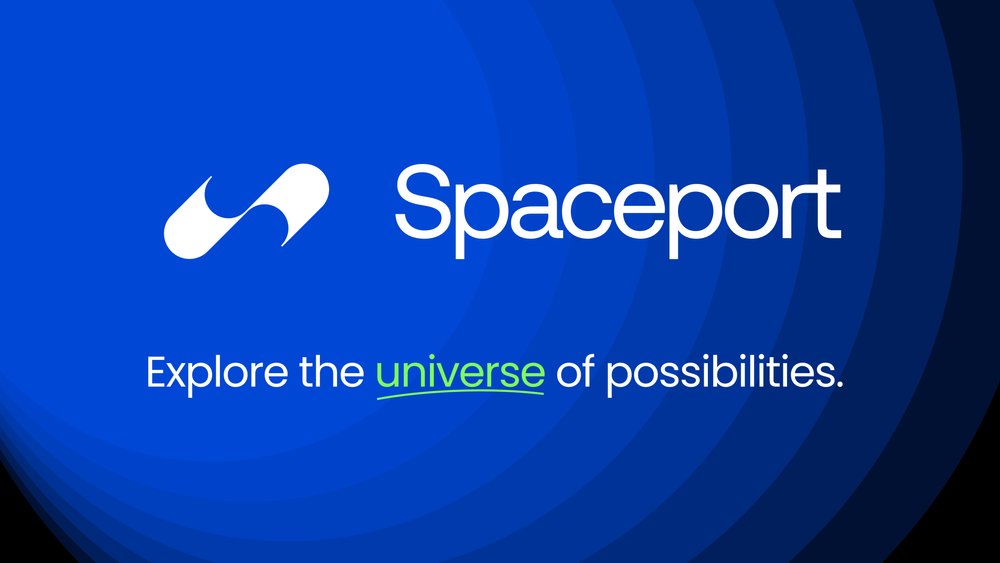Web3 startup Spaceport today announced that it has raised $3.6 million in pre-seed funding to build a blockchain-based protocol to streamline the licensing of intellectual property and make it easier for creators to receive royalties.
Arca, Web3-native venture fund Decasonic and Crit Ventures, the venture capital arm of game developer Com2uS, co-led the funding round. Other investors also joining the round included Cozomo De Medici, Diaspora Ventures, Infinity Ventures Crypto, FBG Capital, Nextview Ventures, Republic Asia and Valhalla Ventures.
Tech entrepreneurs Le Zhang and Lida Tang founded Spaceport to tackle the complicated and legalistic pen-and-paper industry of intellectual property licensing to help creators, brands and agencies make money from their IP and gain better exposure using blockchain and Web3 technology.
Web3, otherwise known as the decentralized web, uses cryptographically protected transactions on blockchains to track and execute contracts peer-to-peer between parties that can be used to provide a programmable way to exchange IP rights. Blockchains also create the basis for cryptocurrencies – with prominent examples being bitcoin and Ethereum — which can be used for monetization.
“We built Spaceport to give creators and brands the ability to monetize their IP faster and more easily than ever before,” said Le Zhang, co-founder and chief executive of Spaceport.
A big part of the problem, according to Spaceport, is small creators get locked out of the market because of the overhead involved with IP rights management. Using Spaceport’s protocol and first application, Spaceport Core, making money from IP will be greatly simplified as their catalogs will be converted to Web3 assets, according to the company. Then from there, creators can use smart contracts to set up deals and receive royalties through the application.
“Spaceport unblocks a key challenge for creators to adopt Web3 by aligning value creation with their IP,” said Paul Hsu, founder and chief executive of Decasonic. “Their licensing infrastructure is accessible, easy to use and drives accretive revenues. I see large potential today for smart contracts to improve the licensing process and contracts.”
Media licensing and royalties management companies have been exploring blockchain technology in an attempt to save costs and draw in new audiences with the expectation that it might help ease decades-long pain points. Examples include Anote Music’s royalties investment platform, which allows artists and labels to license out their music rights to investors and manage royalties in order to raise capital. Tech Mahindra has a blockchain-based contract and rights management system that uses IBM Corp.’s Hyperledger Fabric for IP management.
Music streaming service Spotify even jumped on the bandwagon with the acquisition of Mediachain Labs in 2017, although only to track attribution and licensing details.
Spaceport currently offers its protocol and application privately through a number of significant partnerships with media, gaming and consumer goods companies.
The company said it intends to use the new funds to continue to hire talent, reach out to more partners with prominent IP portfolios who want broader exposure, and build out the company’s public launch of its products.
Image: Spaceport
Show your support for our mission by joining our Cube Club and Cube Event Community of experts. Join the community that includes Amazon Web Services and Amazon.com CEO Andy Jassy, Dell Technologies founder and CEO Michael Dell, Intel CEO Pat Gelsinger and many more luminaries and experts.
Read More: news.google.com









 Bitcoin
Bitcoin  Ethereum
Ethereum  Tether
Tether  XRP
XRP  Solana
Solana  USDC
USDC  Dogecoin
Dogecoin  Cardano
Cardano  TRON
TRON  Lido Staked Ether
Lido Staked Ether  Wrapped Bitcoin
Wrapped Bitcoin  Sui
Sui  Wrapped stETH
Wrapped stETH  Chainlink
Chainlink  Avalanche
Avalanche  Stellar
Stellar  Hyperliquid
Hyperliquid  Shiba Inu
Shiba Inu  Hedera
Hedera  LEO Token
LEO Token  Bitcoin Cash
Bitcoin Cash  Toncoin
Toncoin  Litecoin
Litecoin  USDS
USDS  Polkadot
Polkadot  WETH
WETH  Monero
Monero  Wrapped eETH
Wrapped eETH  Bitget Token
Bitget Token  Binance Bridged USDT (BNB Smart Chain)
Binance Bridged USDT (BNB Smart Chain)  Pepe
Pepe  Pi Network
Pi Network  Ethena USDe
Ethena USDe  Coinbase Wrapped BTC
Coinbase Wrapped BTC  WhiteBIT Coin
WhiteBIT Coin  Aave
Aave  Bittensor
Bittensor  Dai
Dai  Uniswap
Uniswap  NEAR Protocol
NEAR Protocol  Aptos
Aptos  OKB
OKB  Jito Staked SOL
Jito Staked SOL  Ondo
Ondo  Tokenize Xchange
Tokenize Xchange  BlackRock USD Institutional Digital Liquidity Fund
BlackRock USD Institutional Digital Liquidity Fund  Cronos
Cronos  Ethereum Classic
Ethereum Classic